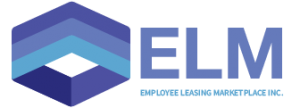
Unlocking Efficiency and Savings: The Essentials of Employee Leasing
In today’s dynamic business landscape, companies often seek ways to streamline their operations, reduce overhead costs, and improve efficiency. Employee leasing, also known as professional employer organizations (PEOs), has emerged as a popular solution. But what precisely is employee leasing and how does it operate? Today, we’ll delve into the intricacies of employee leasing companies and explore their benefits and potential drawbacks.

What Is Employee Leasing?
Employee leasing is a business arrangement where a company transfers the management of certain HR functions to a third-party organization, typically a professional employer organization (PEO). The PEO becomes the co-employer of the client company’s workforce, sharing responsibilities related to HR, payroll, benefits administration, and other personnel matters.
How Does Employee Leasing Work?
Client Company Agreement: The process begins when a client company enters into an agreement with a PEO. This agreement outlines the scope of services, terms, and fees associated with employee leasing.
Co-Employment Relationship
The PEO and the client company enter into a co-employment relationship. The client company retains control over day-to-day operations, and the PEO assumes responsibility for various HR functions, including payroll processing, tax compliance, and benefits administration.
Transferring Employees
Existing employees of the client company become employees of the PEO for administrative and HR purposes. However, they continue to work at the client company’s premises, under its supervision, and in accordance with its policies and procedures.
HR Services
The PEO provides a range of HR services, which may include employee onboarding, performance management, risk management, and compliance with labor laws and regulations. This allows the client company to focus on its core business activities.
Payroll and Benefits
The PEO takes care of payroll processing, tax withholdings, and administering employee benefits such as health insurance, retirement plans, and workers’ compensation. This can lead to cost savings and reduced administrative burden for the client company.

Benefits of Employee Leasing
Now that we understand how employee leasing works, let’s explore some of the key benefits:
Access to HR Expertise
PEOs are staffed with HR professionals who are well-versed in employment laws, regulations, and best practices. This expertise can be invaluable for client companies, especially smaller businesses that may not have in-house HR specialists.
Employee Development and Training
PEOs often provide training and development programs, helping employees enhance their skills and contribute more effectively to the client company’s success.
Reduced Administrative Burden
Employee leasing can significantly reduce the administrative burden associated with HR tasks. From handling paperwork to managing employee records, the PEO takes care of these time-consuming tasks, freeing up internal resources.
Enhanced Employee Satisfaction
PEOs often offer a broader range of employee benefits, including retirement plans, wellness programs, and educational assistance. This can lead to increased employee satisfaction and morale, resulting in higher retention rates.
Improved Recruitment
PEOs may assist with recruitment and talent acquisition, leveraging their networks and expertise to find qualified candidates. This can be especially beneficial when hiring for specialized roles or in competitive job markets.
Access to Technology
Many PEOs provide access to advanced HR and payroll technology platforms. This technology can streamline processes, improve data accuracy, and offer clients real-time insights into their workforce.
Business Continuity Planning
PEOs often have contingency plans in place to ensure business continuity in the event of unexpected disruptions, such as natural disasters or pandemics. This can be a significant advantage in maintaining operations during challenging times.
Global Expansion Support
For companies looking to expand internationally, PEOs can provide valuable support by helping navigate complex international HR and compliance requirements.
Mitigation of Legal Risks
PEOs take on some of the legal responsibilities associated with employment, reducing the client company’s exposure to employment-related lawsuits and disputes.
Flexibility in Benefit Design
PEOs offer flexibility in benefit plan design. They can help tailor benefits packages to meet the specific needs and preferences of employees, which can be a powerful tool in attracting and retaining talent.
Drawbacks and Considerations
While employee leasing offers many advantages, it’s essential to consider potential drawbacks:
Complex Employee Relations
Co-employment arrangements can lead to complexities in managing employee relations. It may be challenging to address issues that arise when employees have two employers, potentially resulting in confusion or disputes regarding responsibilities.
Possible Culture Clash
The culture and values of a PEO may not align perfectly with those of the client company. This disconnect can create challenges in maintaining a cohesive work environment and company culture.
Limited Customization
While PEOs offer standardized HR solutions, they may not cater to highly specialized or unique HR needs. Businesses with very specific HR requirements may find it challenging to fully customize their HR processes within a co-employment structure.
Contractual Commitments
Contracts with PEOs often have fixed terms, and terminating the agreement prematurely can be costly. It’s crucial for client companies to carefully review the contract terms and understand the exit process.
Data Security and Privacy
Sharing sensitive employee data with a third party may raise concerns about data security and privacy. Client companies must ensure that the PEO has robust data protection measures in place and complies with relevant data privacy regulations.
Limited Control Over Benefits
While PEOs provide access to a wide range of benefits, client companies may have limited control over benefit plan design. This can be a drawback if the client company has specific benefit preferences or if it wants to make frequent changes to its benefits offerings.
Potential for Overlapping Roles
In some cases, roles and responsibilities between the client company’s HR department and the PEO may overlap, leading to inefficiencies or confusion. Clear communication and role definition are essential to mitigate this issue.

Do You Need Help from One of the Best Employee Leasing Companies?
Employee leasing, or working with a professional employer organization (PEO), can be an effective strategy for businesses looking to streamline HR functions, reduce costs, and focus on their core competencies.
By understanding how employee leasing works and carefully evaluating the benefits and potential drawbacks, companies can make informed decisions about whether this arrangement aligns with their business objectives. Ultimately, the Employee Leasing Marketplace is a powerful tool to help businesses thrive in today’s competitive marketplace. Contact us today!




